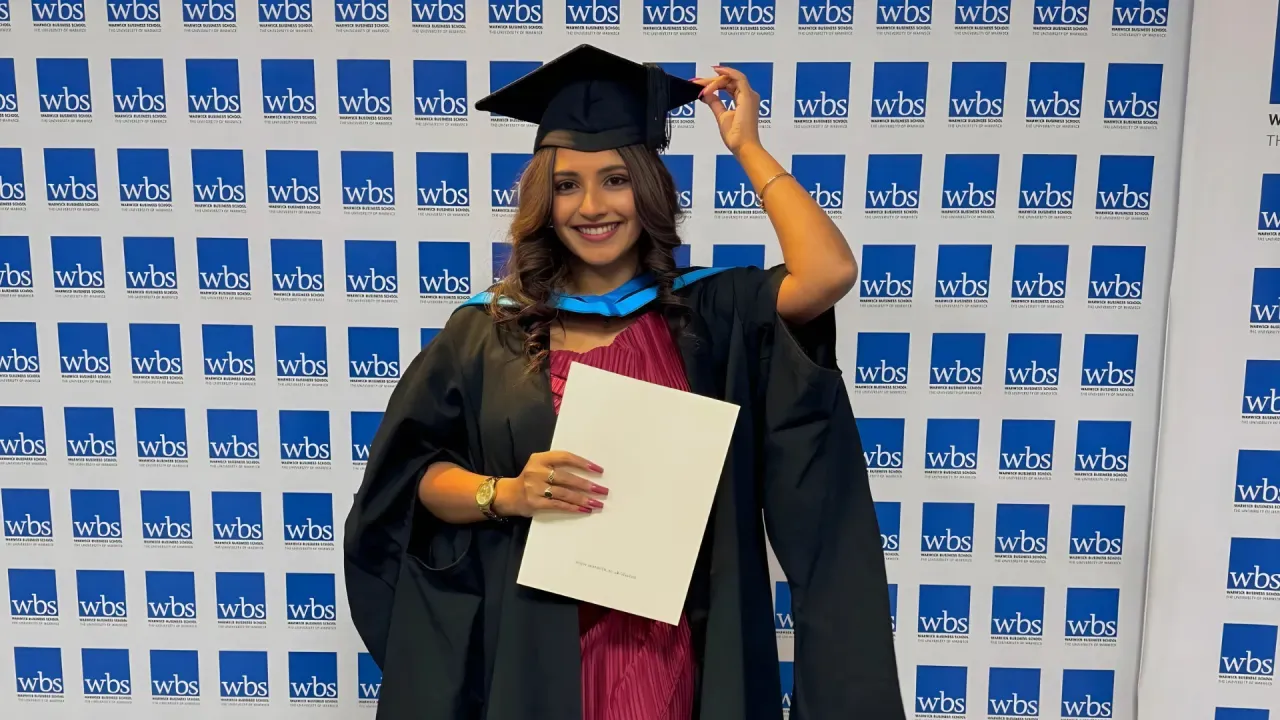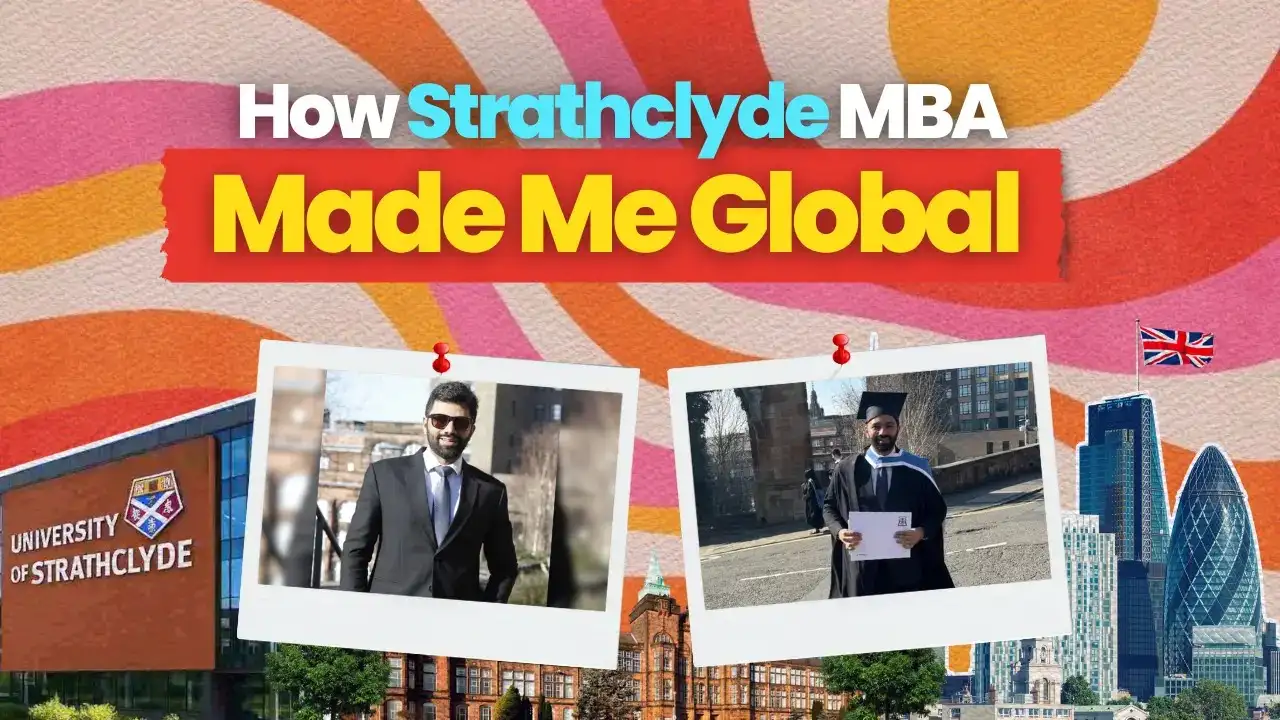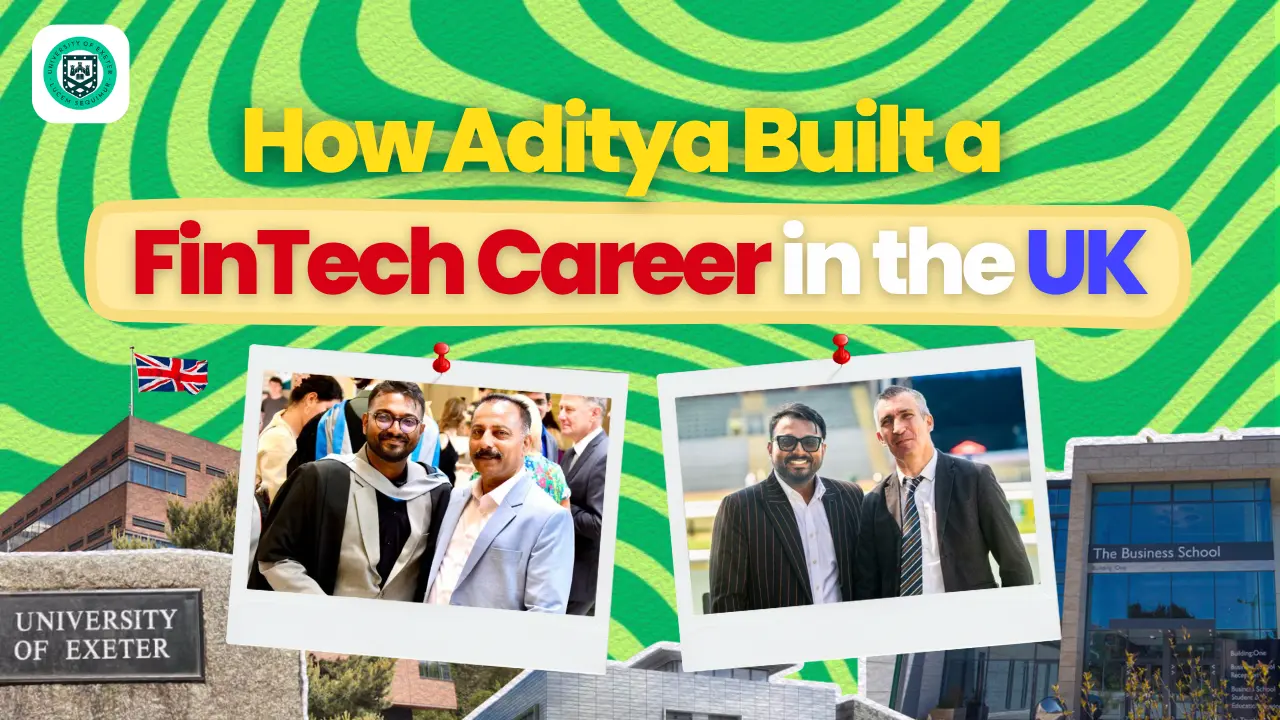Student Reviews
Pursuing Product Management Dreams at Duke: Reshmika's Inspiring Journey

I am Reshmika Dhandapani. I completed my master’s in Engineering Management from Duke University. Currently, I work as a Senior Product Management Analyst at Motorola Solutions. I spoke with Leap about my master’s journey in the US for their Student Expert Series—Indians who had studied abroad recently and are still in that country pursuing their dreams— to assist others who wish to follow a similar career path.
Q. Tell us about your background
I graduated with a bachelor's in electronics and communications engineering from a university in Chennai. During my undergraduate studies, I became interested in exploring different technologies. I took courses in machine learning, data science, and data analytics. During one such exploration, I came across product management. In the back of my head, I noted that I wanted to do something similar to the product. But I joined Accenture as a software engineer and worked there for a year. I spent a lot of time there with product managers, and working very closely with them validated my interest in product management. Later, I took up a bootcamp and felt like it was something for me. And that's when I started looking for courses or for a master's in management-related degrees.
Q. How did you decide where to pursue your master’s degree?
My focus was more on the curriculum rather than the country. Regarding India, the best option would be to do a PG diploma in management at ISB or IIMs, which mostly get categorized as an MBA course. I didn't want to do an MBA that soon because I had just graduated and was just one year into working. I specifically wanted to get my foot into tech management, and I did not find many courses in India offering that.
So, I applied to several schools in the UK. My goal was to get into a university with a good ranking and a course aligned with my interests. Duke University offered a lot of flexibility and different streams of courses. The program I pursued at Duke is explicitly tailored for engineers with an average of 2-3 years of work experience who want to get into management.

Q. What was your student life like in the US?
To put it in one word, it was a great experience. But like everybody, I was scared initially. I was also blessed to have a very nice roommate. So it all worked out for us. We were giving each other good company and help. I did a good amount of research about the professors and the courses that I wanted to take. I had an idea in mind of what I wanted to do. However, after coming to Duke, everything changed majorly in the first semester because you only see so much online through the website. But when you come here and talk to people, there's just so much more than you think. So, I took some courses I wanted to take and explored many different ones. I also took a design thinking course, which blew my mind about how product management and problems are solved in the real world. In Duke, you spend a lot of time after class hours sitting over assignments, but it's worth it, and it's fascinating once you get the concepts.
At Duke, I learned something new in every class. It was three hours of continuous class, but it was not boring. You could sit through the three hours and still be very interested in what was happening in the class. It really made me like what I was doing.
I was working on campus part-time in the library, so I had my morning shifts. I timed them so that I could go to campus in the morning and then just stay there. I would use the campus gym and the facilities. The more you stay on campus, the more friends you make, which also brings a lot of contacts in terms of networking. I was also on the student advisory board for my engineering master's program.

Q. Can you give us a breakdown of your expenses?
The total cost of my course at Duke was around $60,000 to $65,000 (approximately ₹49.8 to ₹54 lakhs). The program was three semesters long. For the first two semesters, I had to pay full tuition fees, and in the third semester, it was miscellaneous, primarily charged for insurance and campus maintenance.
I took a full education loan to cover the entire cost; no self-financing was involved. For personal expenses, I initially landed in the US with about $2,000–$3,000 (roughly ₹1.66 to ₹2.5 lakhs), but within two months, I got an on-campus part-time job at the library. I worked 18 hours a week to cover monthly expenses like rent and groceries.
My monthly rent was around $600–$700 (₹50,000–₹58,000), and groceries cost about $200 (₹16,600). I rarely ate out. We mostly cooked and meal-prepped, which saved a lot. Eating out was limited to the occasional campus meal, costing less than $100 monthly (under ₹8,300).
Q. How was your job hunting process like? Any strategy that worked for you?
So, most of my job-hunting process was through LinkedIn, and 90-95 % was through LinkedIn. I spoke to many people working in the industry in a role I aspire to be in. And then I would ask them to review my resume, go through it, and give me feedback. I did that with multiple people over multiple days until I had a resume that looked good. So I only wanted to get into product management. So I was only applying to those roles. I didn't apply to multiple roles. It helped me stay more focused on what I want to do.
I made a point of actively networking and talking to people. My goal was to speak to at least four or five people from X company weekly for the Y role. So if a role comes up in any of their companies, or if I see a role in their company, I can reach out to them, or I will be at the top of their minds to reach out to. That was my strategy.
One more thing is, don't network just because you want a job. Do it to genuinely learn about what the other person is doing in their role and see if that interests you and would fit your requirements. It's easier to say because we are all pressured to get a job immediately. And at this point, you would be like, I don't care what the job is. Just give me something and I will do it. But that is not the approach you want to take
to people with. So when talking to people, you have to show genuine interest.

Q. Do you have any final thoughts about your master’s journey?
Don’t let the impostor syndrome get you. It doesn't matter if someone in your class has five years of work experience and achieved X, Y, Z things in life. It doesn't matter because today you are in the same classroom studying the same things with the same goal. So you're no less than the other person. So always have that confidence in yourself.
Also, don’t forget to have fun. There are many things to do here, and the nature is beautiful. So, if you are coming to the US, please travel as much as possible.



